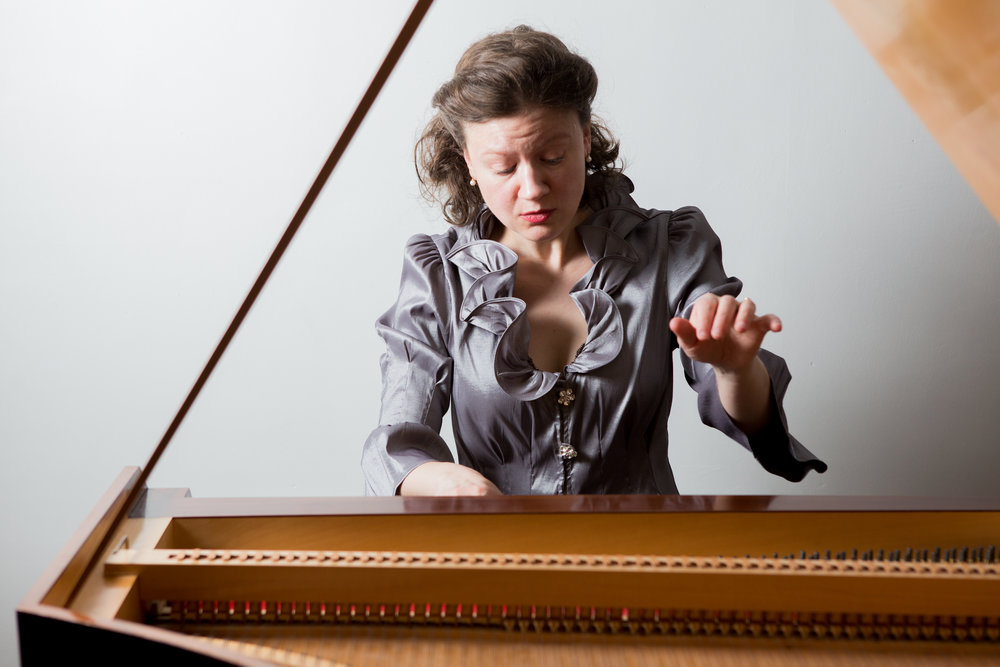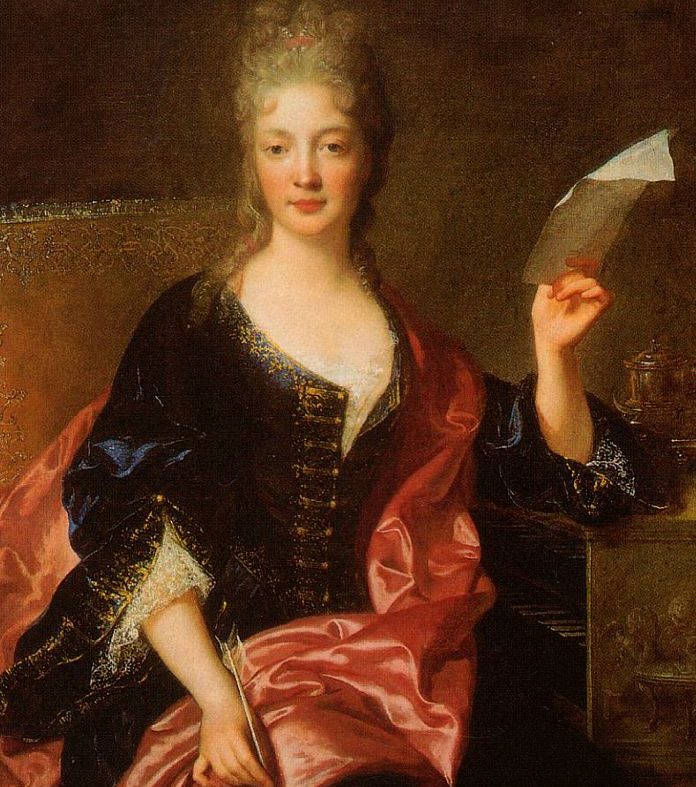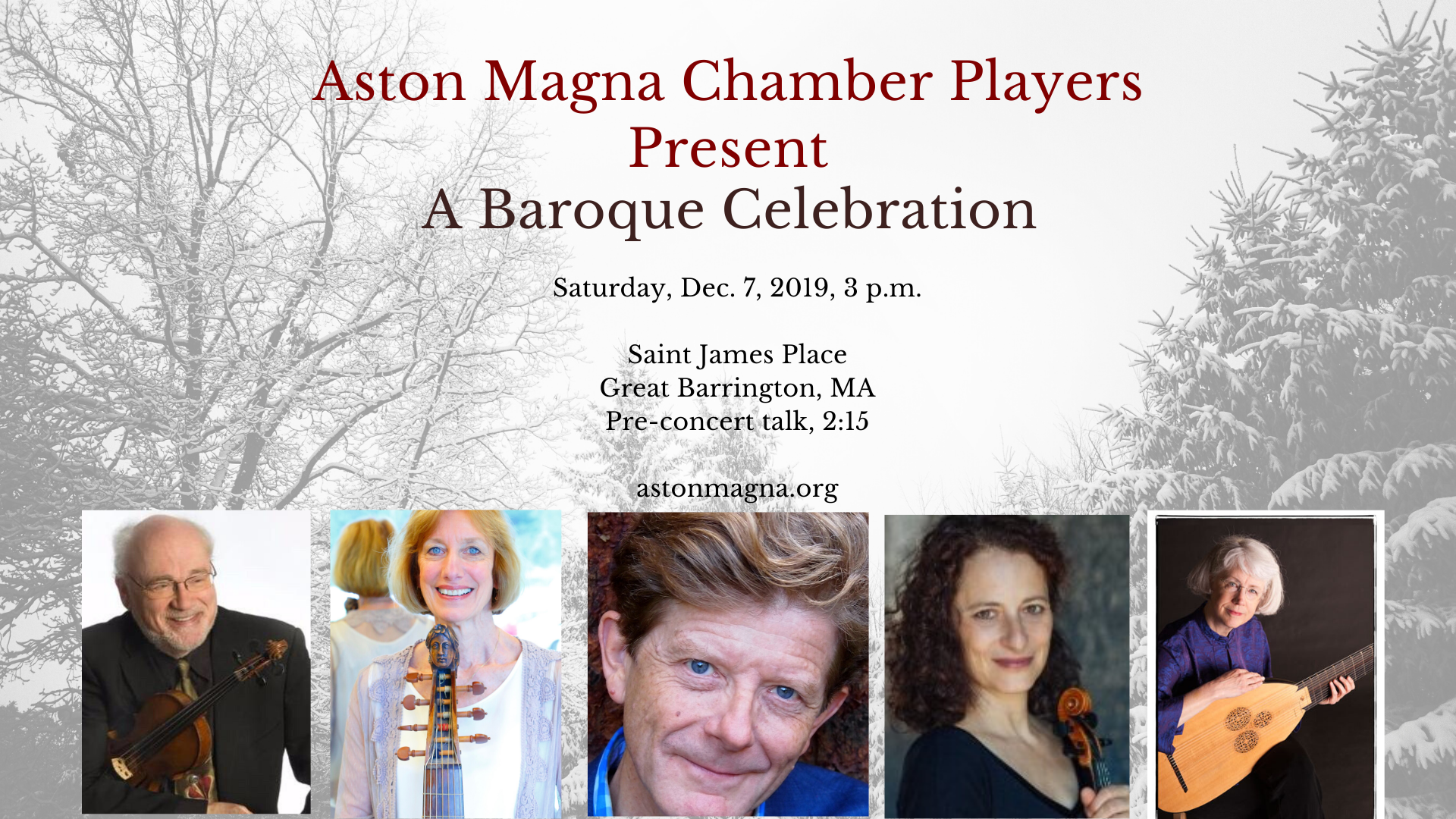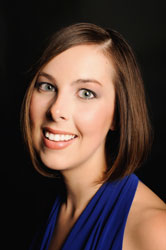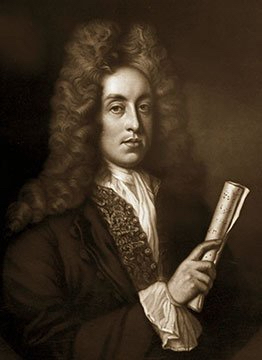
“Expressive performance, very well-balanced…Dido’s famous lament is one of the most beautiful and moving arias in the entire history of opera. Deborah Rentz-Moore’s singing left me in tears” ~ Leslie Gerber, Boston Musical Intelligencer
Welcome to Henry’s World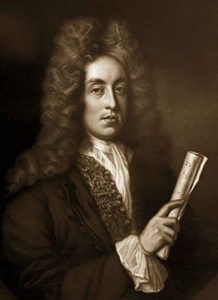
Boston Musical Intelligencer
by Leslie Gerber
Just the title “The World of Henry Purcell,” for Aston Magna’s concert at Time & Space Ltd. in Hudson on Friday, was more than enough to lure me out of my lair. Of course, it’s overambitious to attempt such a survey in one evening. Purcell’s gratifyingly large output (especially for a composer who died at 36) includes orchestral and choral works beyond the scope of Aston Magna’s four singers and five instrumentalists. Still, AM’s director Daniel Stepner arranged a varied selection of representative Purcell, enough to convince anyone who didn’t already know that he is one of the great composers of the Baroque era.
Purcell wrote 22 trio sonatas. Sonata V from the Sonatas in Four Parts is typical in how in a sequence of brief movements, one can sometimes one lead directly into the next—all of them ingenious and beautiful. The players gave us an expressive performance, very well balanced. Most of the music in the remainder of the first part, “Purcell on the Vicissitudes of Love,” came from the “semi-operas” (Stepner’s term) The Fairy Queen, King Arthur, The Indian Queen, and Don Quixote. We’d usually call them plays with music. These pieces were generally light-hearted and sometimes quite funny. It was a mistake to work the final scenes from Dido and Aeneas into this sequence, though. Didois a great tragic opera, and Dido’s famous lament is one of the most beautiful and moving arias in the entire history of opera. Deborah Rentz-Moore’s singing left me in tears, which a return to comedy too quickly dispersed. But all the singers did their work well, the small band accompanying them with alertness and, again, good balance.
After intermission, harpsichordist Michael Sponseller played the Suite in F Major, whose concluding “Round O” Britten used for his famous variations. I loved Sponseller’s vigor and animation, and he included all the repeats and embellishments I want. The show concluded with more excerpts from The Fairy Queen—mostly Purcell-lite, but excellent. The “choral” finale to “Hush, no more,” with the singers’ amazing dynamic range, all the way down to a well-balanced whisper, was really striking.
The attendance at TSL was pretty good, not enough to fill the hall, but certainly much better than the last two seasons at Bard College. I feel sorry for the music lovers who missed out on this, especially the ones who still need to be introduced to Purcell. It remains only for me to thank the excellent individuals: soprano Kristen Watson, mezzo-soprano Rentz-Moore, tenor Jason McStoots (quite a sense of comedy in him), baritone David McFerrin, violinists Stepner and Julie Leven, viola da gambist Laura Jeppesen (as usual a great pleasure to watch in action), theorboist Catherine Liddell, and Sponseller. I’m grateful to all of them.
Leslie Gerber, who lives in Woodstock, New York, has been reviewing professionally since 1966, for such venues as Performance Today, Fanfare, and Amazon.com. He also publishes the Parnassus Records label.

